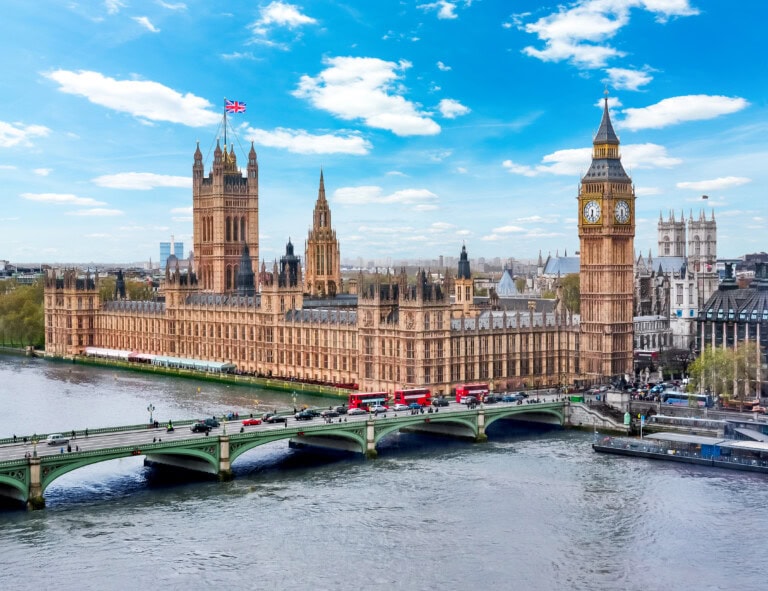UKGBC responds to 2025 Comprehensive Spending Review

Today, Chancellor Rachel Reeves unveiled her line by line spending review, setting out the budgets of government departments until 2030.
Simon McWhirter, Chief Executive of UKGBC said:
It’s with real relief that we welcome the Chancellor’s confirmation to stand by the government’s commitment of the full £13.2bn investment to upgrade the UK’s homes and buildings. This is an essential commitment to lowering energy bills, tackling fuel poverty, and improving energy security.
But this is only half the battle. To ensure this funding delivers results, it must be backed by a robust national retrofit strategy that empowers local authority delivery and supports households to make energy-saving improvements.
As our National Retrofit Investment Calculator shows, the true scale of the challenge demands investment much closer to £60bn over 10 years. The investment committed today must be used to unlock private and household investment, through tax reforms such as shifting levies off electricity, and tools like Warm Homes Stamp Duty or green mortgages.
The Government has rightly upheld its manifesto pledge; now it must partner with industry to deliver at pace and scale, creating skilled jobs and delivering healthier, warmer homes for millions.”
While today’s Spending Review delivers welcome clarity on long-term retrofit and housing investment, it falls short of the scale and urgency needed to meet the UK’s climate, nature, and resilience goals.
We are pleased to see the government maintain the promised investment into the warm homes plan of £13.2bn. Our homes are critical infrastructure and should be treated as such. This funding must be underscored by effective and long-term policies as set out in the forthcoming Warm Homes Plan, and delivered by local authorities who will need support to deliver cuts to bills and carbon.
The Government’s reaffirmed commitment to social housing delivery, with £39bn in a new social homes programme, is welcome. These homes should all meet the forthcoming Future Homes Standard, and must be energy-efficient, high-quality, and climate-resilient – future proofing and protecting tenants from an increasingly volatile climate and spiralling energy bills.
The £8.3bn investment confirmed for Great British Energy today must be used to accelerate grid upgrades, connect community-scale renewables, and create local clean power opportunities (community-scale energy generation) in parallel with clean heat. The cost of electricity is crucial to the success of the warm homes plan and Great British Energy, and in future budgets we would like to see electricity levy rebalancing with targeted support to protect low and middle income households on gas heating. This will be essential to delivering lower bills and boosting energy security, while helping to deliver the transition to clean heat at lowest cost to the Treasury and consumers.
We welcome the modest additional investment in climate resilience, flood protection, and the natural environment. But with the climate already changing, today’s announcements – committing a needed £4.2bn for flood defences – remain well below the levels needed to future-proof homes, businesses, and infrastructure against the escalating climate risks facing communities across the UK. The UK must treat climate adaptation as a public infrastructure priority, or risk escalating economic and social costs in the decades ahead. UKGBC’s upcoming Climate Resilience Roadmap includes policy proposals to guide government action on this issue. The increased support for Environmental Land Management schemes will improve the quality of our natural environment, and should be complemented by a planning system which delivers spaces where people and biodiversity can thrive.
We’re encouraged by new signals of support for the planning system, including funding to increase local authority capacity and modernise the process. Delivering better places means not just more planners, but better paid, better trained, and better equipped planning teams across the country. Today we have seen some of this realised with funding for the new AI planning tool – what’s needed is long-term, structural investment in people, skills, and modern planning processes.
Investing in local authority delivery is the most effective route to progress on net zero, resilience and housing. Today’s spending review was encouraging with an increase to local authorities’ core spending power totalling £3.4bn grant funding per year, and additional support across planning, skills, and housing delivery (£950m for the Local Authority Housing Fund). Councils should be fully empowered with the funding and skills they need to lead place-based transitions. We welcome the announcement of investment in neighbourhoods and local leadership, with funding to empower communities to shape the future of their places. This kind of place-making is exactly what UKGBC’s regenerative places programme is exploring, looking at how we can design and deliver places that go beyond sustainability and restore and renew social, environmental, and economic systems.
This Review offers a lot of positive signs of commitment – particularly on retrofit – but leaves much of the heavy lifting to future budgets and policy reforms. Without a joined-up, long-term investment framework across planning, energy, nature, and resilience, the Government’s goals will remain fragmented and difficult to deliver at scale.
The built environment remains one of the clearest opportunities to drive down emissions, cut bills, and improve quality of life. It’s time for public investment to match that potential.
Related
UKGBC responds to the Climate Change Committee’s 2025 Progress Report

UKGBC responds to OFGEM’s energy price cap rise

UKGBC responds to the Government’s minimum energy performance standards

UKGBC responds to updated National Planning Policy Framework


